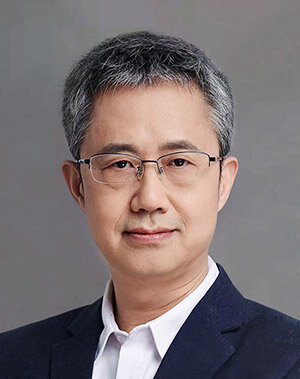

Information metamaterials
For a long time, metamaterials have been characterized by equivalent medium parameters, which can freely regulate electromagnetic waves by controlling the medium parameters and their distributions, bringing many new physical phenomena and applications. However, once the metamaterials are fabricated, their functions will be fixed and cannot be adjusted for real-time manipulations to electromagnetic fields and waves; they are also difficult to effectively combine with the information theory and digital signal processing methods. To change this situation, in 2014, Professor Tie Jun Cui firstly proposed the new ideas to characterize the meta-atom using digital bits and manipulate the electromagnetic waves using digital coding sequences (or patterns) on the metamaterial array. By integrating PIN diodes on the meta-atom to switch its digital states and controlling the digital coding sequences (or patterns) with a field programmable gate array (FPGA) in real time, he proposed and fabricated the first programmable metamaterial, which can realize many different functionalities in a single meta-platform in reprogrammable way. Currently, the concept of programmable metamaterial has been extended from electromagnetic to acoustic, optical, thermal and mechanical metamaterials. More importantly, the digital representation of the metamaterial makes it possible to process and modulate the digital information in the electromagnetic space. Based on this, Professor Cui further proposed the concept of information metamaterial in 2017, which can merge the electromagnetic world and the digital world, resulting in the birth of a new metamaterial system. The information metamaterial can manipulate the electromagnetic waves and process the digital information in the electromagnetic space simultaneously, providing a solid platform to produce electromagnetic information theory, tailor wireless channel and environment, and generate new-architecture information systems for wireless communications, intelligent sensing and imaging, and programmable artificial neural networks. As a special form of the information metamaterial, reconfigurable intelligent surface (RIS) was chosen as one of potential Key Technologies for 6G Wireless Communications, and was pushed to the International Standard under the framework of IMT-2030 (6G) for RIS.
Tie Jun Cui is an academician of the Chinese Academy of Science, IEEE Fellow, and director of the State Key Laboratory of Millimeter Wave, Southeast University, China. He has been engaged in research on electromagnetic metamaterials and computational electromagnetics for a long time. In 1993, he received the Ph.D. degree from Xidian University, Xi’an, China. From 1995 to 2002, he successively served as a Humboldt Research Fellow at the University of Karlsruhe, Germany, a postdoctoral Research Associate and a Research Scientist at the University of Illinois at Urbana-Champaign, USA. In 2001, he was appointed as a Changjiang Scholar Distinguished Professor at Southeast University, and in 2002, he received the National Science Foundation of China for Distinguished Young Scholars. He is the Principle Investigator of the Basic Science Center of the National Natural Science Foundation of China, the major project of the National Natural Science Foundation of China, and the Key Research and Development Program of the Ministry of Science and Technology, China, for the disruptive technologies. Professor Cui proposed the concepts of digital coding metamaterials and programmable metamaterials, and realized their first prototypes, creating a new system of information metamaterials. Among many developing directions, reconfigurable intelligent surface based on the information metamaterial has become one of the potential key technologies for 6G communications. He has published over 600 peer-review papers in Science, Nature Electronics, and other prestigious journals, which have been cited by more than 66000 times (H-Factor 125), and licensed over 160 patents. Professor Cui was awarded a Research Fellowship from the Alexander von Humboldt Foundation, Bonn, Germany, in 1995, and received a Young Scientist Award from the International Union of Radio Science in 1999. Professor Cui received the Natural Science Award (first class) from the Ministry of Education, China, in 2011, the National Natural Science Awards of China (second class) in 2014 and 2018, respectively, the Clarivate Highly Cited Researchers Awards (2019-2023), the Award of Science and Technology of Jiangsu Province (first class) in 2022, and the Frontiers of Science Award in the First International Congress of Basic Science, 2023. He also received many Best Paper Awards in prestigious journals and conferences. His research works have been selected as one of the most exciting peer-reviewed optics research Optics in 2016 by the Optical Society of America, 10 Breakthroughs of China Science in 2010, 10 Breakthroughs of Science and Technology in National Universities of China in 2021, and many Research Highlights in a series of journals. His work has been widely reported by Nature News, MIT Technology Review, Scientific American, Discover, New Scientists, etc. Currently he is the Chief Editor of Metamaterial Short Books in Cambridge University Press, the Editor of Materials Today Electronics, the Associate Editor of Research, and the Editorial Board Member of National Science Review, eLight, PhotoniX, Physical Review Applied, Advanced Optical Materials, Small Structure, Advanced Photonics Research, and Journal of Physics: Photonics. He presented more than 100 Keynote and Plenary Talks in Academic Conferences, Symposiums, or Workshops.